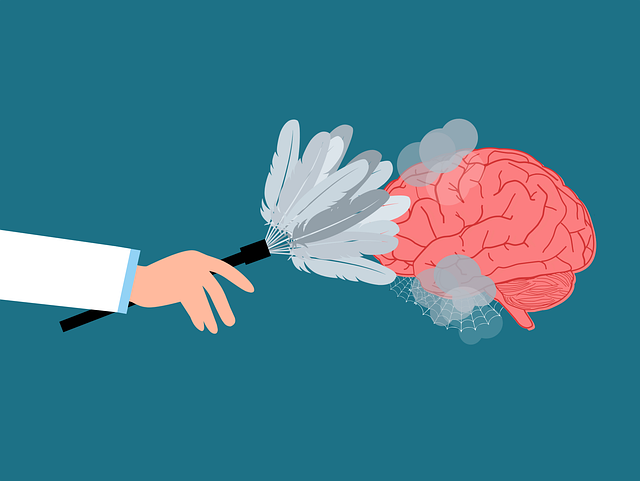Golden Trauma Therapy (GTT) equips mental health professionals with a structured approach to assess risks and provide trauma-informed care, enabling them to understand clients' unique traumatic histories. Integrating GTT allows for identifying complex trauma responses, personalizing treatment plans, and improving client outcomes. Safe practices, cultural competency training, and continuous education through resources like the Mental Wellness Podcast Series Production enhance resilience and prevent burnout. Analyzing case studies deepens understanding of mental wellness dynamics, while advocacy for policy improvements benefits both individual clients and mental healthcare delivery systems. Regular workshops, seminars, and online courses ensure professionals stay updated with evidence-based practices, promoting self-care and a healthy work-life balance.
“In the realm of mental health, effectively managing risk is paramount to ensuring patient safety and practitioner well-being. This comprehensive guide delves into crucial aspects of risk assessment tailored for professionals employing Golden Trauma Therapy. From understanding the foundational principles of this therapeutic approach to identifying and mitigating potential risks in practice, we explore a tapestry of strategies.
Learn about implementing robust safe practices, studying complex case scenarios, and the vital role of continuous training in navigating the challenges unique to this specialized field.”
- Understanding Golden Trauma Therapy: A Foundation for Risk Assessment
- Identifying Potential Risks in Mental Health Practice
- Implementing Safe Practices and Protocols
- Case Studies: Navigating Complex Scenarios
- Continuous Training and Professional Development for Mitigating Risks
Understanding Golden Trauma Therapy: A Foundation for Risk Assessment

Golden Trauma Therapy (GTT) serves as a robust foundation for risk assessment among mental health professionals. This therapeutic approach focuses on helping individuals process and heal from traumatic experiences, fostering mental wellness through specialized techniques. GTT emphasizes the importance of understanding an individual’s unique trauma narrative, which is crucial in identifying potential risks and tailoring interventions accordingly.
By integrating GTT into their practices, mental health professionals can enhance their capacity to assess and manage risks effectively. This involves recognizing complex trauma responses, understanding the impact of past experiences on present behaviors, and designing tailored treatment plans. Moreover, the development of Mental Wellness Coaching Programs and engaging in Mental Wellness Podcast Series Production can further enrich professionals’ skills in navigating these delicate situations, ultimately contributing to improved client outcomes.
Identifying Potential Risks in Mental Health Practice

Mental health professionals, while dedicated to helping others, are not immune to potential risks within their practice. Identifying and mitigating these risks is a crucial aspect of maintaining both professional integrity and personal well-being. One significant area to focus on is trauma support services, particularly for those engaging in Golden Trauma Therapy. This specialized approach requires healthcare providers to carefully navigate complex emotional landscapes, which can lead to burnout if not properly addressed.
Burnout prevention strategies are essential tools for mental health professionals. By recognizing the signs and implementing effective countermeasures, practitioners can enhance their resilience. Additionally, cultural competency training plays a vital role in ensuring sensitive and effective patient care. Through these comprehensive approaches, trauma support services can flourish, fostering an environment where both therapists and clients thrive.
Implementing Safe Practices and Protocols

Implementing safe practices and protocols is an indispensable component of risk assessment for mental health professionals. At the heart of this lies a comprehensive approach that prioritizes both patient safety and the well-being of practitioners themselves. One such effective strategy involves integrating Golden Trauma Therapy techniques, which have proven to be powerful tools in mitigating potential risks during therapy sessions. By adhering to these guidelines, mental health professionals can enhance their ability to manage complex cases and deliver crisis intervention guidance with greater confidence.
Moreover, leveraging resources like the Mental Wellness Podcast Series Production can play a vital role in continuing education and staying abreast of emerging best practices. Equally important are foundational principles, such as those encapsulated in Mind Over Matter, which emphasize the mind’s resilience and its capacity for transformation. Together, these initiatives foster an environment where mental health professionals can effectively navigate challenges while ensuring the highest standards of care.
Case Studies: Navigating Complex Scenarios

In the realm of mental health practice, case studies often present complex scenarios that require nuanced navigation. These real-world examples serve as powerful tools for training and skill development among professionals, especially those associated with Golden Trauma Therapy. By delving into intricate cases, therapists can enhance their ability to adapt therapeutic techniques and develop personalized approaches tailored to individual client needs. This process fosters a deeper understanding of the dynamic nature of mental wellness, enabling practitioners to manage even the most challenging situations effectively.
For instance, examining case studies involving individuals with complex trauma histories can provide insights into the intricate interplay between past experiences and current presentations. This knowledge is pivotal in guiding therapy sessions that align with evidence-based practices like Mind Over Matter Principles. Through careful analysis and advocacy for Mental Health Policy Analysis and Advocacy, professionals can ensure their interventions are not only effective but also contribute to broader systemic improvements in mental healthcare delivery.
Continuous Training and Professional Development for Mitigating Risks

Mental health professionals, like therapists and counselors, face unique challenges that can lead to burnout or secondary trauma. To mitigate these risks, continuous training and professional development are essential. Regular workshops, seminars, and online courses can equip practitioners with the latest evidence-based practices and techniques, such as Golden Trauma Therapy, to better support their clients. This ongoing education not only enhances their skills but also fosters self-awareness exercises and self-care practices, which are crucial for maintaining a healthy work-life balance.
Additionally, engaging in public awareness campaigns development can play a significant role in reducing risks by spreading knowledge and fostering understanding of mental health issues within the community. By staying informed and proactive, mental health professionals can better manage their own well-being while providing high-quality care to those they serve.
Mental health professionals play a crucial role in helping individuals heal from trauma, but this work comes with inherent risks. By integrating Golden Trauma Therapy as a foundational approach, practitioners can effectively identify and mitigate potential hazards within their practice. Implementing safe practices, adhering to protocols, and engaging in continuous training are essential strategies for navigating complex scenarios and ensuring the well-being of both clients and professionals. Embracing these measures allows mental health experts to provide high-quality care while minimizing risks, ultimately fostering a secure environment for healing.














